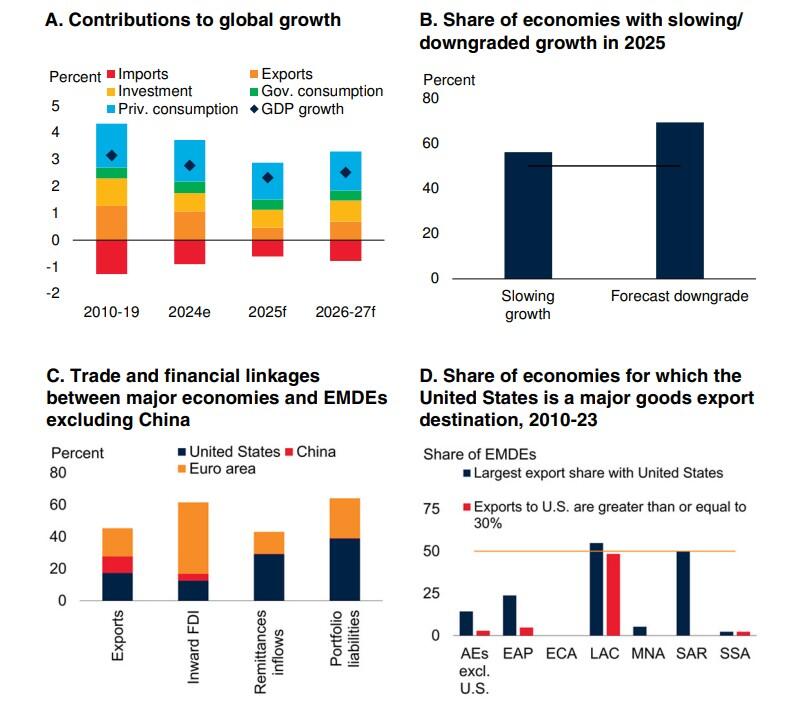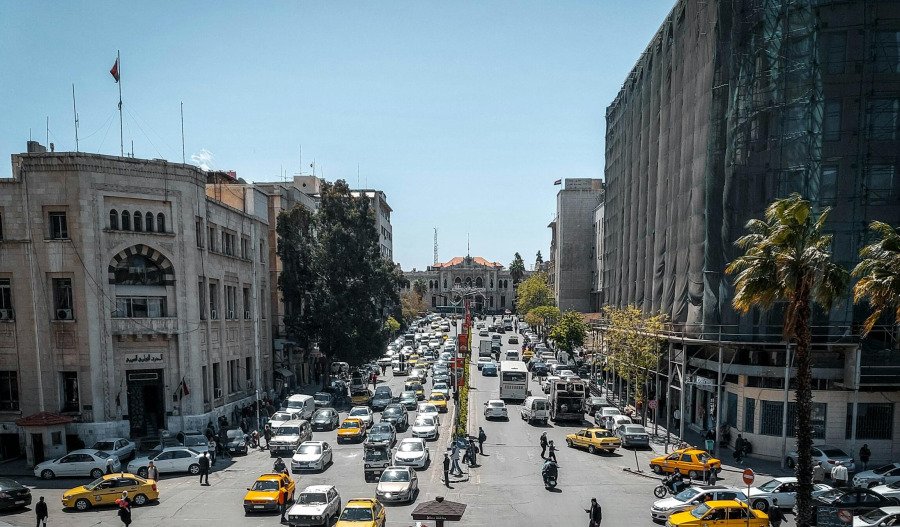The numbers don't lie - and they're awful - as the World Bank delivers a devastating assessment of global economic prospects by slashing its global growth forecast to 2.3% for 2025 - the slowest pace since 2008.
The global development organisation's latest clarion call informs us that the world's economy is buckling under the weight of the United States-China trade war - one that shows no signs of abating as yet.
High tariffs and heightened uncertainty now pose a "significant headwind" for nearly all economies, according to the World Bank's latest Global Economic Prospects report.
Its chief economist Indermit Gill minced no words, saying that "international discord - about trade in particular - has upended many of the policy certainties that helped shrink extreme poverty and expand prosperity after the end of World War II".
The macro picture is stark and unforgiving for anyone hoping for a swift economic turnaround.
After decades of globalisation that drove unprecedented prosperity across both developed and emerging markets, we're witnessing its potential unravelling in real-time as protectionist policies take hold.
Effective tariff rates have reached levels not seen in a century, creating what the IMF describes as a "highly unpredictable environment" that's paralysing business investment and planning.
The US economy, once a driver of growth, has had its forecast sliced by 0.9% to just 1.4%, while Europe isn't faring much better, with GDP expectations down 0.3% to a measly 0.7%.
Meanwhile, global merchandise trade is expected to decline by 0.2% in 2025, with North America facing a significant 12.6% drop in exports that will ripple through supply chains worldwide.

A glimmer of hope…
Yet there's a glimmer of hope buried in the doom economic institutions highlight.
The World Bank suggests that if today's trade disputes were resolved with agreements that halve tariffs, global growth could be stronger by about 0.2% on average over this year and next.
“Global cooperation is needed to restore a more stable and transparent global trade environment and scale up support for vulnerable countries grappling with conflict, debt burdens, and climate change,” the report states.
“Across emerging market and developing economies (EMDEs), domestic policy action is also critical to contain inflation risks, strengthen fiscal resilience through improved revenue mobilisation, and reprioritise spending.”
…is sometimes just a glimmer
The tragedy is that this economic carnage would be entirely avoidable if political leaders had chosen cooperation over confrontation.
Everyone loses in trade wars, but some lose more than others - as the weakest economies bear the brunt of disrupted commerce.
As supply chains fragment and costs soar across nearly all industries, the beneficiaries of decades of economic integration are being systematically dismantled by politicians wielding tariffs like weapons.
The World Bank's forecast follows similar downsizes by the OECD and IMF, creating a chorus of warnings from the world's top economic institutions.
The era of seamless global trade may be ending, and the consequences could be felt for years to come.



